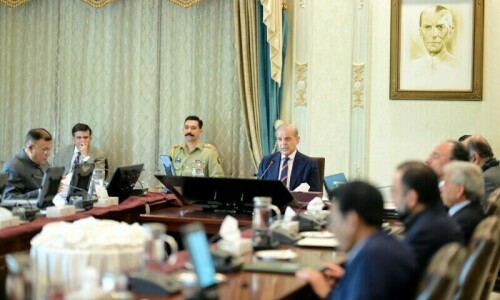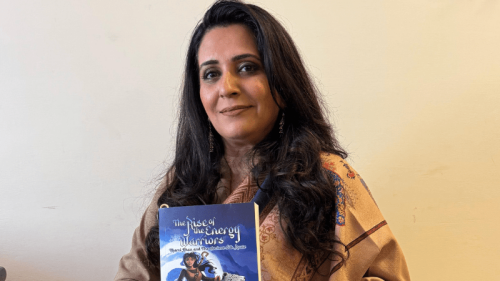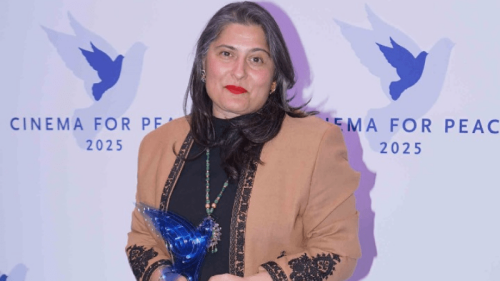PASSING away of a near or a dear one gives an extremely painful feeling, especially when you are away in a distant land. In just over four weeks in South Africa while on tour with the Pakistan team, I have lost two of my long-known friends, both of whom wielded a lot of influence in sports and, in particular, cricket - the game we so passionately follow.
First, it was Dr Mohammad Ali Shah, the Sindh Minister of Sports whose tireless and tremendous contribution to the game made him the most revered personality of every sports follower in the country. I shall, indeed, throw light on his achievements in detail when I am back in the country.
At present, however, I would like to pay a tribute to my old friend Haseeb Ahsan who passed away in Karachi on Friday. I met him for the first time in the mid-fifties when we first played against each other in an inter-varsity match for Sindh and Peshawar University respectively, and later at the first-class level.
Our bond was further cemented when we were part of the first coaching scheme organised by the then BCCP in 1957-58 in which chosen cricketers from every part of the country - including the then East Pakistan - were invited to live at the National Stadium in Karachi for over a month to be trained by famous Test cricketers of the time headed by then Pakistan captain Abdul Hafeez Kardar.
Four of them from that coaching camp – Saeed Ahmed, Ijaz Butt, Nasim-ul-Ghani and Haseeb – were later selected to tour the West Indies on Pakistan’s first visit to the Caribbean the same year.
Haseeb made his debut there in a six-day epic Test at Bridgetown, Barbados where the legendary Hanif Mohammad batted for three and a half days to make 337 and save the match after Pakistan had been asked to follow on 473 runs in arrears. Haseeb later toured India and England, finishing with only 27 wickets in 12 Tests. His playing career was shortened after he was sent back from 1962 England tour in controversial circumstances after he was called in a county match for throwing. But that is another story and can be told some other time.
I have yet to see an off-spinner who could turn the ball so viciously and with pace as Haseeb did. On the Indian tour of 1960-61 under Fazal Mahmood, Haseeb bowled a marathon 84 overs for six wickets conceding 202 runs, his best figures in Tests.
But it was not his cricket career at Test level that he was known for but for his acumen as an administrator at all levels, as selector and chairman of selectors, as manager of the touring team to England in 1987 when Pakistan for the first time won a Test series in England under Imran Khan. That was a tour soured by unending controversies.
A man of strong conviction and self-belief, Haseeb wielded immense power and stood up to the challenge, not tolerating any nonsense from any quarters.
On that 1987 England tour, he had objected to the appointment of David Constant and Ken Palmer as umpires in the Test series which was politely declined by the then TCCB, the controlling body of the game in England. Pakistan and India had both suffered previously on tours owing to dicey decisions by those umpires and had reservations about them.
His request was not taken kindly by the local tabloids who started a campaign against him and even scandalised him in their columns which later led to worse incidents including the infamous Shakoor Rana and Mike Gatting affair during the Faisalabad Test in which a day was lost because of the standoff and the tour came under threat of cancellation. In the end, however, sanity prevailed.
Haseeb as chairman of the selection committee was accused of flaring the incident by the British press because he had refused England’s request to withdraw Shakoor Rana from the panel of umpires. After England tour of Pakistan in 1987 ended in controversy as did the World Cup jointly hosted by Pakistan and India, an inquiry committee was set up to find the cause of the Shakoor-Gatting standoff. Late Omar Kurieshi, a radio commentator of repute, and first-class cricketer Yawar Saeed who later managed Pakistan team on many tours were part of that inquiry committee.
The report was submitted to then BCCP president Lt Gen Safdar Butt to be sent to the TCCB and ICC.
I had covered that England tour for BBC, Reuters and the London paper the Mail on Sunday. Before I left for England, Haseeb phoned me to accompany him to Lahore to see the inquiry committee report before it was passed on to England authorities. Since I had covered the whole tour and the World Cup as well, Haseeb wanted to be sure that everything in the report was accurate since he was also a World Cup committee director.
But when I was handed the report to read at the Gaddafi Stadium, I found it to be quite inaccurate, to say the least. I made several corrections on the report then and there before I was brought into Gen Safdar Butt’s room to hand it over to him. He looked at it and was quietly embarrassed to see it fearlessly edited by me.
The General asked me as to why I never met him before on my tours to Pakistan and I said: “When you were appointed by President of Pakistan Gen Zia-ul-Haq, you had admitted publicly that you have never played the game or know anything about it. That is the reason why I never met you to waste your time.” Safdar sheepishly said, ‘You are right’ and Haseeb laughed.
As a general manager of PIA in Saudi Arabia, UK and Singapore and later as the head of American Express in Pakistan, Haseeb really excelled in his job. He was also an honorary Consul General of Ireland in Pakistan. He was the blue-eyed boy of Air Marshal Nur Khan - one of the greatest sports administrators the country has produced - but Haseeb even took him on when as a selector he objected to the appointment of an injured Imran Khan for the 1983 Australia tour and later resigned from his post.
But on the 1987 tour of England as manager, Haseeb really helped Imran in his campaign to collect funds for the cancer hospital. The Pakistan team on that tour showed great trust in Haseeb’s ability of handling situations which he did admirably no matter what the odds.
Haseeb was the man who selected Wasim Akram for his first tour despite all the opposition and he was the man who banned Test batsman Qasim Omar for making unsubstantiated allegations of drug abuse against his captain Imran Khan.
Once in his office, he handed me a 10-page letter to read that was written by Qasim Omar, asking Haseeb to pardon him and lift his ban. Haseeb, however, never forgave him for bringing a bad name to cricket and his captain.
Son of a high-profile bureaucrat Muzaffar Sahib from Bihar, Haseeb was educated at the Islamia College in Peshawar where he lived at a hostel before graduating and moving to Karachi to live with his friend Hanif Mohammad.
Just before I left for South Africa at the end of January, he had also lost his younger brother who had suddenly died.
Haseeb played for Peshawar, Karachi and PIA in first-class cricket taking bagful of wickets and scoring nearly 4000 runs. But sadly now he has left thousands of admirers mourning his death. We will all miss him!












































Dear visitor, the comments section is undergoing an overhaul and will return soon.